If you’re passionate about the latest technology, you must’ve heard about the recent hype about NFTs. But do you know there are NFT Domains as well?
NFT Domains are a very new development in the crypto industry. But are they going to change the future of the web? Let’s find out!
In today’s article on NFT Domains, we will begin by understanding what traditional domains are and how they function. Then, we will touch up on the topic of NFTs, discover what an NFT domain is, and how it differs from traditional domains.
Finally, we will move on to discuss the benefits and drawbacks of an NFT domain, and if you should get one for yourself.
So, with no further delay, let us begin!
- What are Traditional Domains?
- How do Traditional Domains Work?
- Problems with Traditional Domains
- What is an NFT?
- What is an NFT Domain?
- Advantages of NFT Domains
- Disadvantages of NFT Domains
- Popular NFT Domain Companies
- 1. Unstoppable Domains
- 2. Ethereum Name Service (ENS)
- 3. Namecheap
- Should You Get an NFT Domain?
- Conclusion
- FAQs
What are Traditional Domains?
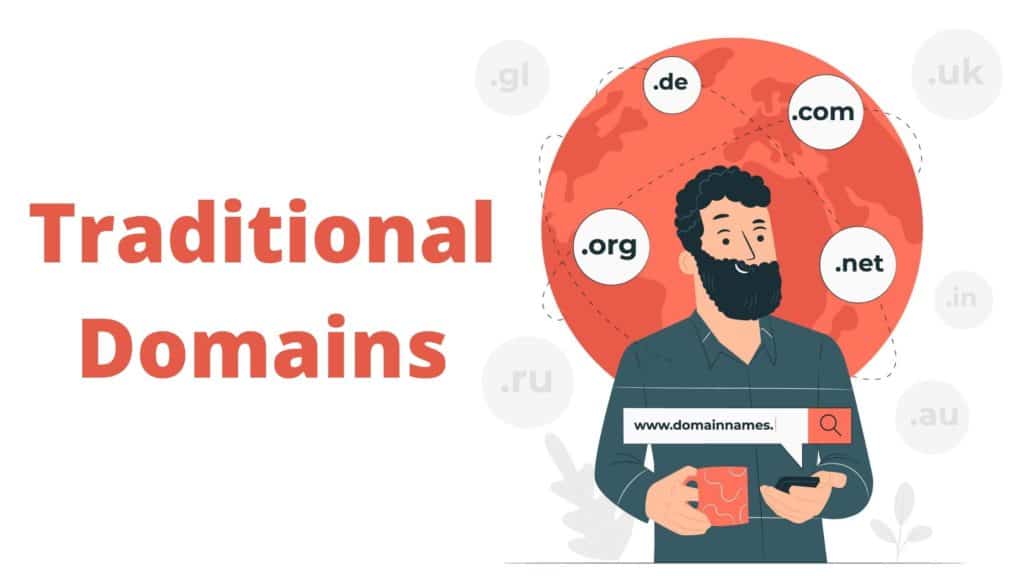
Traditional domains comprise all those websites that we surf on the Internet daily. These might include domain extensions like .com, .org, .net, and more.
As of 2021, there were over 367 million+ traditional domains registered across the world! Traditional domain names operate through the DNS or the Domain Name System.
Let us discuss its working in detail.
How do Traditional Domains Work?
Well, you might know we need an IP address in order to access anything stored on the Internet, right? Every website is assigned an IP address, which is basically the location of the server where the website data is stored.
But because it is quite difficult to remember complex sets of numbers for every website, we instead replaced them with human readable names that were easy to memorize. These are called domain names.
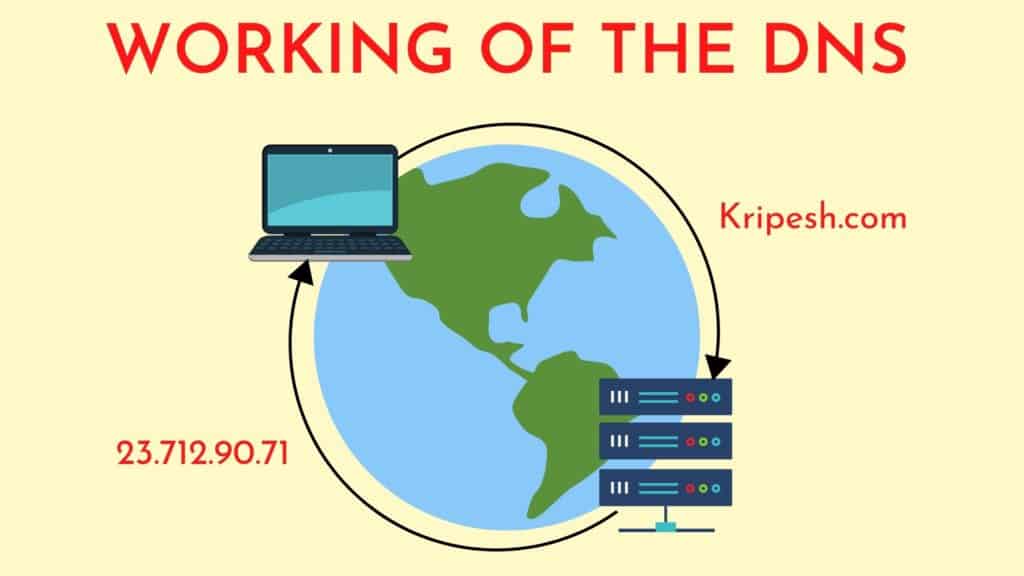
When you enter a domain name, for example kripesh.com in your browser, it goes to the DNS server, which resolves it into its IP address.
This IP address is then sent to the web server that fetches the files stored on that IP address for you. This is how you can access different web pages on the Internet.
The biggest advantage of DNS is that we need not memorize IP addresses. However, there are some major problems with the traditional domains. Let us understand what they are.
Problems with Traditional Domains
Censorship
All the traditional domains are regulated by a non-profit organization called ICANN (Internet Corporation for Assigned Names and Numbers).
It has the power to suspend or take over any domain if it violates any of their rules.
Domains are Rented
On the DNS system, you don’t own your domains. A domain name is simply rented to you for a specific period ranging from 1 year to 10 years! This means that you can never really be called the owner of your domain.
Centralized Service
ICANN is a centralized service which means it has a single point of failure. It is the sole owner of all the domains on the Internet. If ICANN gets hacked, all the millions of websites registered with it would be compromised as well!
All the problems discussed above raise questions on the privacy and safety of traditional domains. NFT domains address and solve these issues quite efficiently. Let us find out how.
What is an NFT?
NFTs or “non-fungible tokens” are unique and non-replaceable digital assets that can be purchased, sold, or traded online. This might include digital artworks, songs, videos, movie posters, game accessories, ebooks, memes, etc.
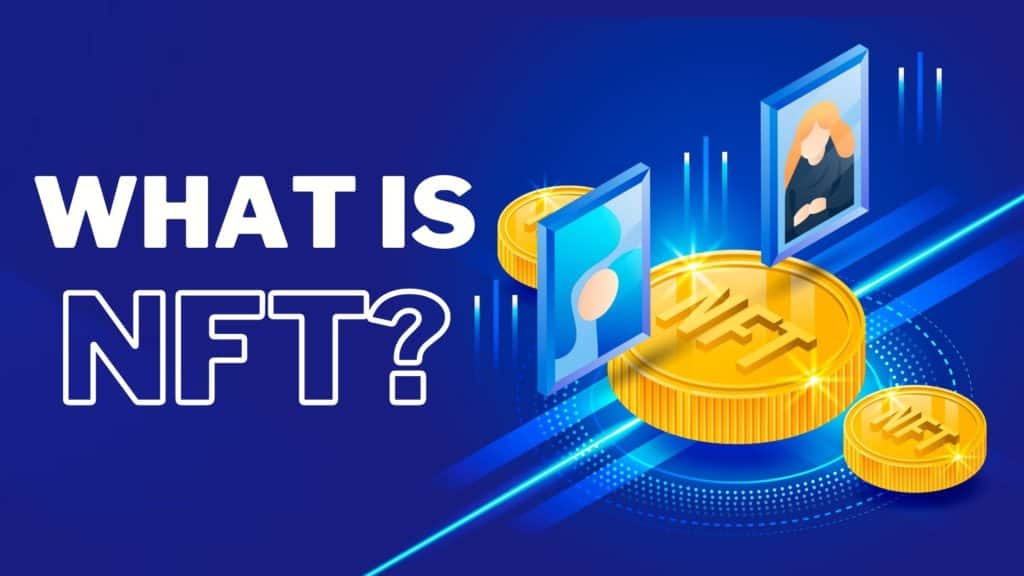
The primary purpose behind creating an NFT is to prove the ownership of a digital asset. For example, if you create a digital art, its NFT would validate that you are the true owner of that artwork.
NFTs basically work on the blockchain technology. Speaking in technical terms, NFT is a unique address stored on a public blockchain that cannot be replaced or replicated by anyone.
Thus, it is a fool-proof way of recording information. This system has not been hacked by anyone yet, and is believed to be almost impossible to hack!
What is an NFT Domain?
Non Fungible Token (NFT) Domains are also known as crypto domains, decentralized domains or blockchain domain names.
These are short, easy, and memorable addresses used as a substitute for your complex crypto wallet address, i.e., blockchain address.
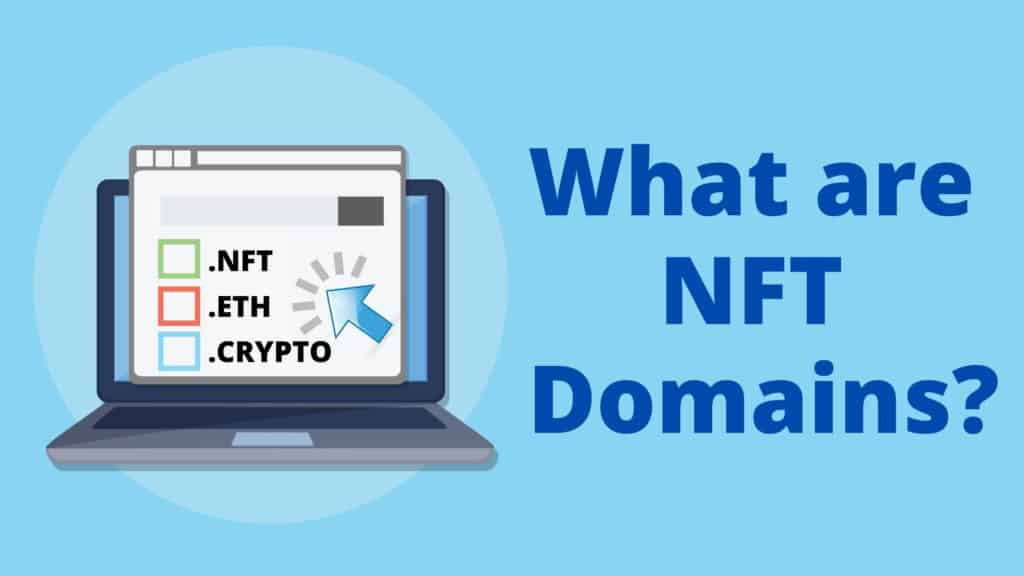
So, instead of entering the receiver’s long and complicated 42-bit wallet address for making payments, an NFT domain can replace it with a simplified name, say, kripesh.crypto.
This is easy to remember, and the chances of any typos are minimized.
Along with working as a crypto wallet address, NFT domains also double up as a website domain where you can publish your website. Some examples of NFT domain extensions are .crypto, .nft, .wallet, etc.
Advantages of NFT Domains
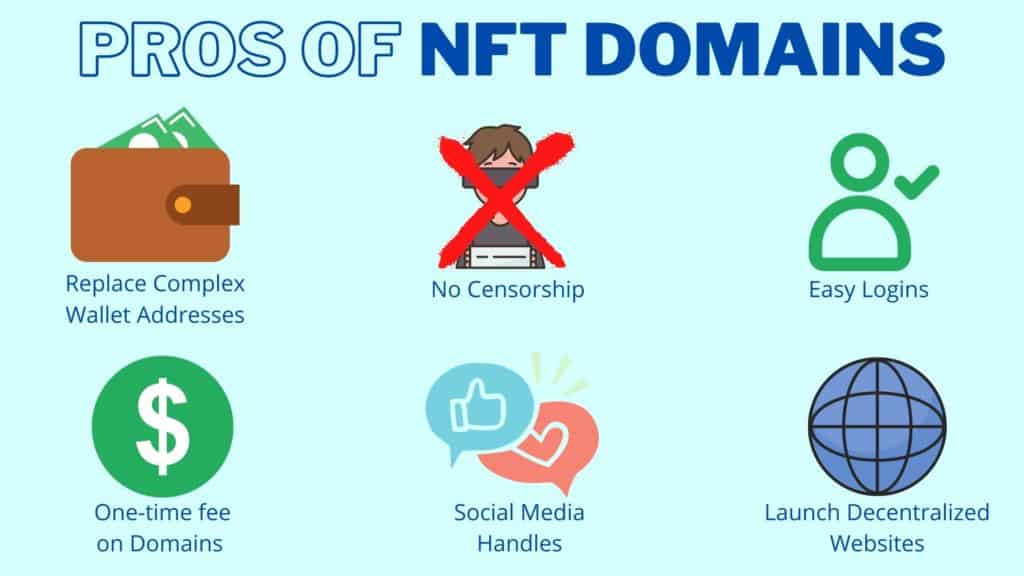
Replace Complex Wallet Addresses
While performing crypto transactions, you need to share your 42-bit cryptocurrency address with others to receive your payments.
In case of errors while typing out the wallet address, the transaction is not validated.
Thus, getting a blockchain domain name simplifies the payment process for you by replacing that lengthy string of numbers with an easy to remember name like kripesh.crypto.
It supports 275+ cryptocurrency wallets that you can easily connect and start receiving payments.
With the help of an NFT domain name, when you receive payments in any cryptocurrency, for instance, Bitcoin, it would be transferred to that specific wallet automatically.
No Censorship
In contrast to the DNS system that is regulated by ICANN, the blockchain system is decentralized. This means there is no centralized body controlling it.
Thus, there is no censorship and nobody can get your domain cancelled no matter what content you post.
Easy Logins
A Domain NFT not only works as a crypto wallet but you can also use it as simple usernames for logging in to multiple apps with ease.
As of now, many apps are being launched where you need to enter your wallet address. To save up time and ease complexity, you can use your NFT domain name instead.
One-time fee on Domains
On the DNS system, domains are registered on a subscription basis. Every year, you need to pay a renewal amount in order to keep your domain.
For example, Verisign owns the .com domains and every year, it increases the prices of .com domains by 7%.
A blockchain domain can be owned forever with no renewal fee charged. All you need to do is purchase it for a one-time fee and enjoy forever!
Launch Decentralized Websites
An NFT domain can work with decentralized cloud storage, P2P websites, and on the IPFS (Interplanetary File System) protocol.
However, complex websites like WordPress are not possible to be designed on IPFS at the moment. You can create simple HTML websites only.
Can Resell Domains
All your purchased blockchain domains can be resold at any price of your choice. This is a clever way to make some extra money.
Use as Social Media Handles
You can also use crypto domains as social media handles. At the moment, Twitter allows you to replace your handle with Ethereum Name Service.
Disadvantages of NFT Domains
Blockchain Termination
This seems to be the biggest threat for NFT domain owners. If the blockchain associated with your domain gets terminated, your domain would cease to exist as well.
For example, .zil domains are based on the Ziliqa blockchain. If they stopped this blockchain in the future, all the domains on it would be removed.
Supported by Limited Browsers
As of now, Blockchain domains are supported by limited web browsers. For example, Unstoppable Domains supports Brave and Opera browsers by default.
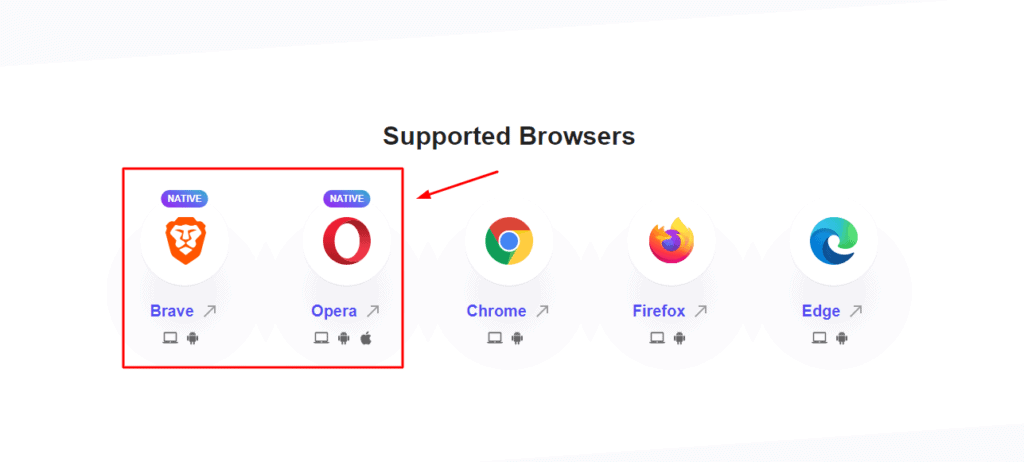
If you wish to browse NFT domains on popular browsers like Chrome or Firefox, you need to download extensions and tweak some settings.
Not Indexed by Google
As of now, Google only recognizes domains that are using the DNS system. Because NFT domains use the blockchain technology, Google does not index them yet.
NFT domains are anyway not meant for creating complex SEO-friendly websites. You can simply create basic HTML pages right now. So, how Google will index NFT domains is a thing we will discover in the coming years.
Domain Collision
Domain collision is another huge problem and there is no clarity regarding it. For example, at the moment, the .crypto domain is offered by Unstoppable Domains, which is based on the Ethereum blockchain.
If the .crypto domain is also offered by ICANN, kripesh.crypto domain name would exist as two domains – one based on the DNS system, and one on the blockchain system.
It might happen in the future, but it hasn’t happened yet. We don’t have any workable solutions for this problem as of now.
Popular NFT Domain Companies
Just like the DNS system has domain registrars like GoDaddy, Namecheap, or Dynadot, where you can buy domains, the blockchain system has NFT domain registrars.
So, if you are planning to buy an NFT domain, these are some of the most popular and reliable companies that offer NFT domains.
1. Unstoppable Domains
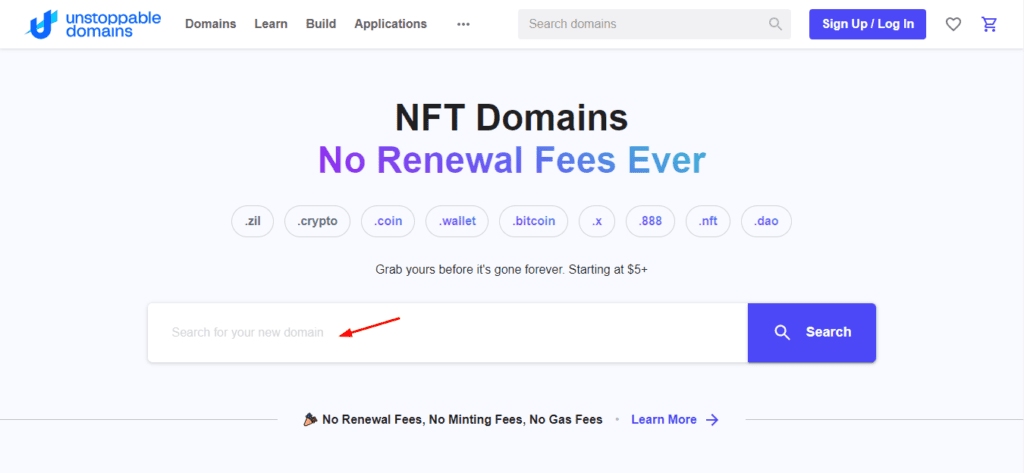
Unstoppable Domains is a major NFT domain provider established in 2019 with an aim of bringing more and more people to the decentralized web.
It also provides hosting service along with NFT domains and has sold over 2.2M+ NFT domains till date. You get the following domain extensions: .nft, .crypto, .wallet, .zil, .coin, .dao, .bitcoin, .x, and .888.
2. Ethereum Name Service (ENS)
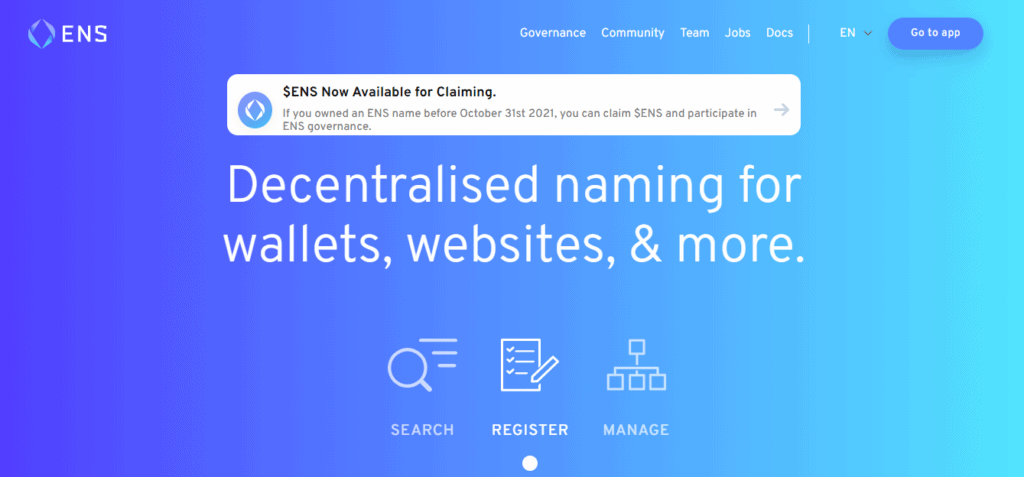
Ethereum Name Service is a distributed naming system based on the Ethereum Blockchain. It has sold over 825k+ domains to date.
Its task is to map simplified domain names like ‘kripesh.crypto’ to their complex crypto addresses in order to make payments easier. You get the .eth domain extension with Ethereum Name Service.
3. Namecheap
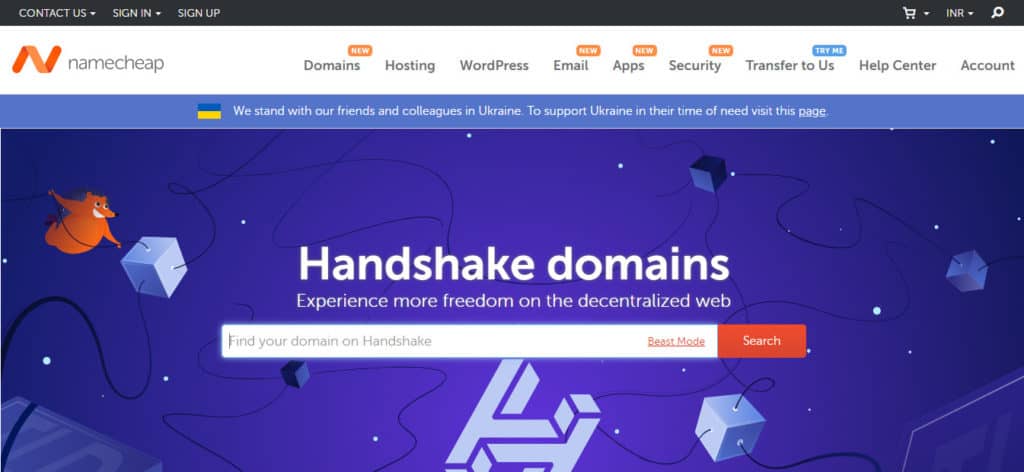
Namecheap is a popular domain name provider that offers some limited blockchain domain extensions called as handshake domains. However, you need to pay a renewal fee every year on them.
Some popular NFT domain extensions offered are .p, .oo, .pgp, .saas, .oh, .creator, .oot, .orb, .sox, .elite, and .ill.
Should You Get an NFT Domain?
The entire concept of NFTs is new. If you are a newbie just starting out with their blogging journey or online business, you wouldn’t need an NFT domain right now.
However, if you are an already established business who needs to expand their brand or accept crypto payments, you can try NFT domains. It would simplify your payment process and also help you raise your brand awareness!
Conclusion
An NFT domain can be a fruitful investment for established businesses and blogs. In this article, we saw the difference between conventional domain names and NFT domains and their major pros and cons.
I hope you found this information helpful and got some insight into this new concept of NFTs. Have you ever purchased an NFT domain or are planning to get one? Do you have any doubts about it? Shoot them in the comments box below and I’ll try to answer them as soon as possible.
If you wish to enjoy similar informative articles, you can sign up for my weekly newsletter and keep receiving regular updates about my latest posts and YouTube videos.
Anyway, this is Kripesh signing off. Keep learning. Cheers!
FAQs
How to register a NFT domain name?
NFT domains can be registered through blockchain domain registrars. The most popular ones are Unstoppable Domains, Ethereum Name Service, etc.
What makes NFT domains valuable?
Unlike centralized domains falling under the DNS system, NFT domains are decentralized. They do not impose any restrictions or censorship on your website.
Along with that, you have the complete ownership of your domain. This makes Domain NFTs valuable.
Can I make money on NFT domains?
Yes, you can make money by reselling your NFT domains at higher prices than what you purchased them for.
What can I do with a NFT domain?
With an NFT domain, you can perform crypto transactions for hundreds of cryptocurrencies via a single simplified wallet address.
You can also create a basic HTML website with your NFT domain or use it for logging into multiple apps.

